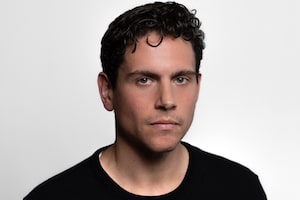
People walk to honour Rodney Levi, an Indigenous man who was shot and killed by RCMP one week ago, in Red Bank, N.B., on June 19, 2020.Stephen MacGillivray/The Canadian Press
As scores of mourners watched from a distance, Rodney Levi, the Indigenous man who was shot and killed by RCMP one week ago, was laid to rest Friday in a private family ceremony in his home community of Metepenagiag Mi’kmaq Nation.
Mr. Levi’s funeral was paired with healing walks across the region as First Nations people in New Brunswick mourned the death of another community member at the hands of police. Eight days before Mr. Levi was shot, Chantel Moore, a 26-year-old woman originally from Tla-o-qui-aht First Nation, was killed by an Edumundston police officer conducting a wellness check.
Ken Levi, Rodney’s uncle, said his nephew will be remembered for his athleticism, sense of humour and his willingness to help out other people in need.
“He was a great ballplayer, he was a great fisherman. He was a good guy. He was helpful. Those are the things people remember,” said Ken Levi. “He watched all his nieces and nephews and took care of them when their mom or dad was working.”
Trudeau said Indigenous people disproportionately targeted by police, vows reforms
‘Shut it down now': First Nations leader, MPP alarmed after another death at Thunder Bay jail
The funeral, a private ceremony for close friends and family, was followed by Mr. Levi’s burial in the adjacent cemetery, and a feast at the band hall and community centre.
At a healing walk on the reserve, mourners made up of local community members and people from nearby First Nations including Esgenoopetitj, Eel Ground and Elsipogtog, marched from a baseball field to the front of the Catholic church to pay their respects to Mr. Levi. People in the procession carried warrior and Mi’kmaq Grand Council flags, and despite temperatures reaching nearly 40 degrees, stood outside for more than an hour as they waited for the funeral to begin.
As they waited silently near the church steps for Mr. Levi to be taken inside, the march leader, Rainier Ward, a youth worker in Metepenagiag, spoke up.
“This little demonstration will not change the world, but it can be a start. It can change people’s hearts,” Mr. Ward said. “It’s time for us to show unity and solidarity.”
Mr. Levi and Ms. Moore’s deaths have kick-started conversations about systemic racism in the policing of Indigenous communities in the province and beyond.
The killings, which are both being investigated by Quebec’s Bureau des enquêtes indépendantes (BEI) because New Brunswick doesn’t have a police oversight agency, have led to calls from Indigenous leaders for police reform, and for the province to launch an independent inquiry.
Blaine Higgs, the Progressive Conservative Premier, has resisted committing to such a measure, saying this week he preferred to instead to review recommendations based on previous inquiries and reports into Indigenous discrimination.
Mr. Higgs and a cadre of his ministers met with Wolastoqey and Mi’kmaq chiefs Wednesday to discuss ways to address systemic racism against Indigenous people in the province.
The six chiefs of the Wolastoqey Nation were disappointed with the outcome. They said they’d hoped Premier would support their call for an independent inquiry.
Metepenagiag Mi’kmaq Nation Chief Bill Ward smirked to signal his displeasure on Friday evening when he was asked about the meeting.
“It’s more of the same,” he said. “You had multiple chiefs in the meeting expressing exactly what they wanted to see, and basically the Premier said ‘no’ to an inquiry on systematic racism.”
Kevin Vickers, the Leader of the New Brunswick Liberal Party, attended the healing walk. Mr. Vickers, a long-time RCMP member and former sergeant-at-arms on Parliament Hill, said he supports calls for an independent inquiry.
“To regain trust and confidence [from First Nations], there’s a need for an independent and public inquiry to exactly what went on and how to address these issues, especially with people who are having mental-health crises,” he said.
Friends of Mr. Levi said that while he had mental-health problems, he was not a violent or dangerous person.
On the day Mr. Levi was buried, Mr. Ward preferred to focus on the positive aspects of his life, despite the hardship his community has endured for the past week. He was moved, though not surprised, to see an outpouring of support coming from other First Nations.
“Our people always come together in times of need,” he said. “The community showing today, and the amount of people who participated and helped throughout the week, being there for the family, whatever they needed, 24/7. It’s really a testament to Rodney’s character, what he meant to the community and what kind of person he was.”
Our Morning Update and Evening Update newsletters are written by Globe editors, giving you a concise summary of the day’s most important headlines. Sign up today.
 Jamie Ross
Jamie Ross